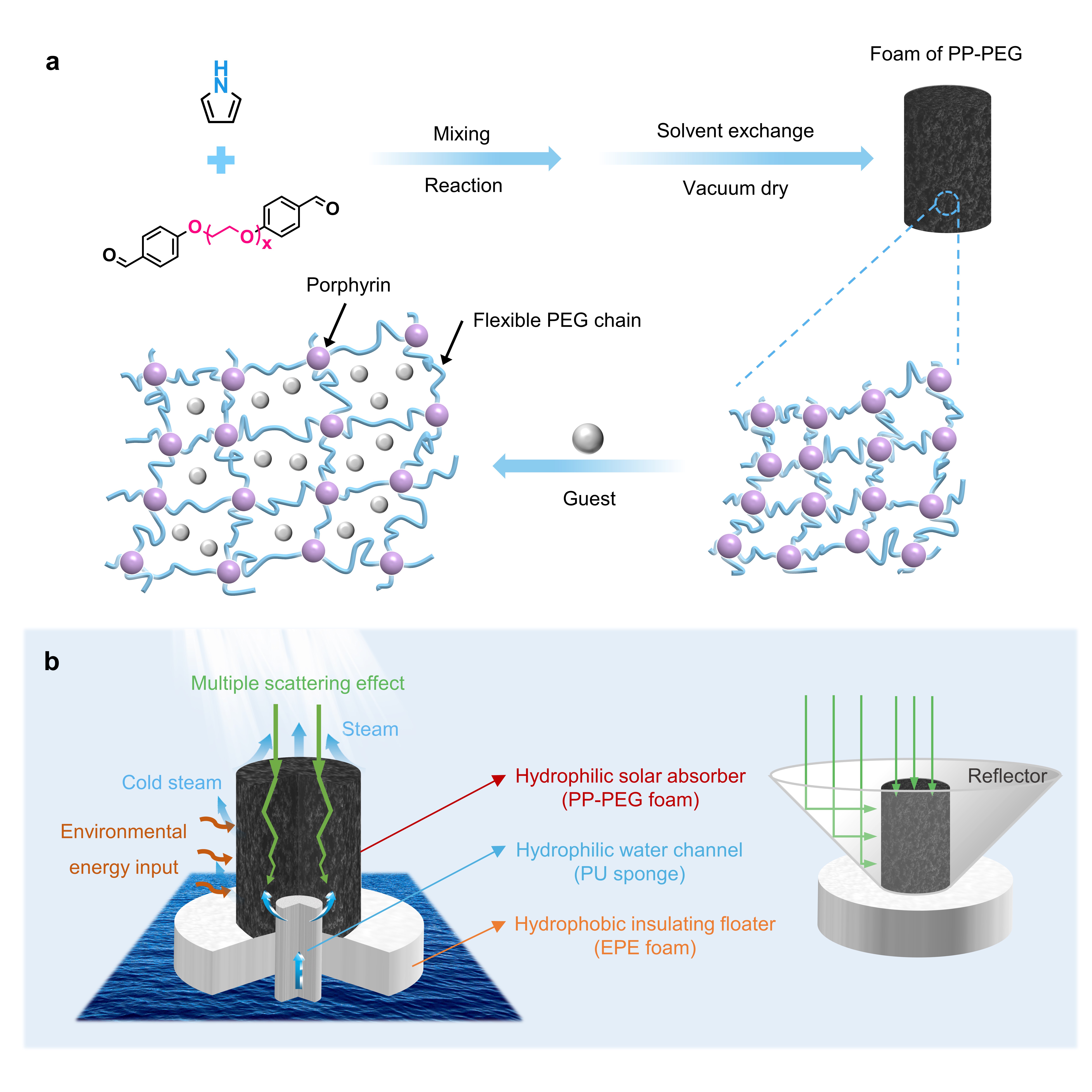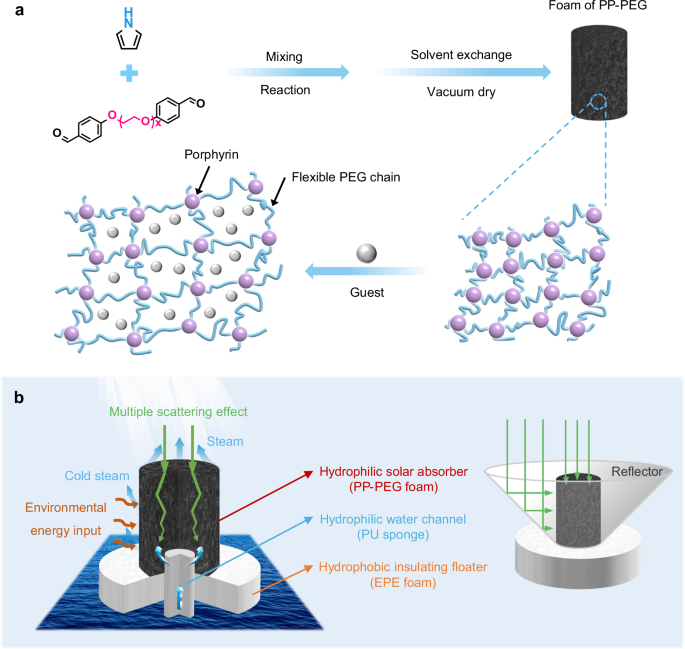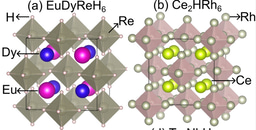Highly efficient solar steam evaporation via elastic polymer covalent organic frameworks monolith
Published in Earth & Environment, Materials, and Sustainability
Water scarcity is a growing global crisis. Driven by climate change, population growth, and unsustainable practices, over 2 billion people currently live in water-scarce regions. To address this issue, we must pursue simple, practical, low-energy solutions. Solar desalination offers a promising option for low-income, water-scarce countries with high solar resource availability.
Here, elastic polymer covalent organic frameworks (PP-PEG) have been developed for efficient solar steam evaporation, which is expected to solve the problem of water scarcity . PP-PEG foams demonstrate full spectrum absorbance and excellent photothermal conversion properties. Through well-designed thermal management and optimization of the hydrophilicity and PEG chain length, we obtain a highly efficient solar evaporator with an evaporation rate of 4.89 kg m−2 h−1 under 1 sun in self-contained mode. The optimized solar evaporation rate is increased to 18.88 kg m−2 h−1 under 1 sun with a facile truncated cone reflector, exceeding all known solar steam evaporators. This innovative design holds immense promise for desalination and water purification owing to its simple preparation, high efficiency and durability.

The high solar evaporation performance originated from the high full-spectrum absorbance, superior photothermal conversion properties, high hydrophilicity for efficient water transfer, and spherical microstructure with increased irradiation and evaporation area of porphyrin-based elastic polymer COFs monolith evaporator. On the other hand, the design and structure of the evaporator are also critical to excellent evaporation performance, including self-contained evaporation mode and reflector-assisted evaporation mode which make full use of not only the top surface of the 3D monolith evaporator, but also the lateral surface for enhanced evaporation. In conclusion, the PP-PEG solar evaporator proposed in this work exhibits excellent characteristics in terms of performance, preparation and application, and provides an innovative solution to the problem of freshwater shortage.
Follow the Topic
-
Nature Communications

An open access, multidisciplinary journal dedicated to publishing high-quality research in all areas of the biological, health, physical, chemical and Earth sciences.
Related Collections
With Collections, you can get published faster and increase your visibility.
Women's Health
Publishing Model: Hybrid
Deadline: Ongoing
Advances in neurodegenerative diseases
Publishing Model: Hybrid
Deadline: Mar 24, 2026




Please sign in or register for FREE
If you are a registered user on Research Communities by Springer Nature, please sign in
Fantastic work Awei. A big congrats!
Thank you. Looking forward to your next interesting work!